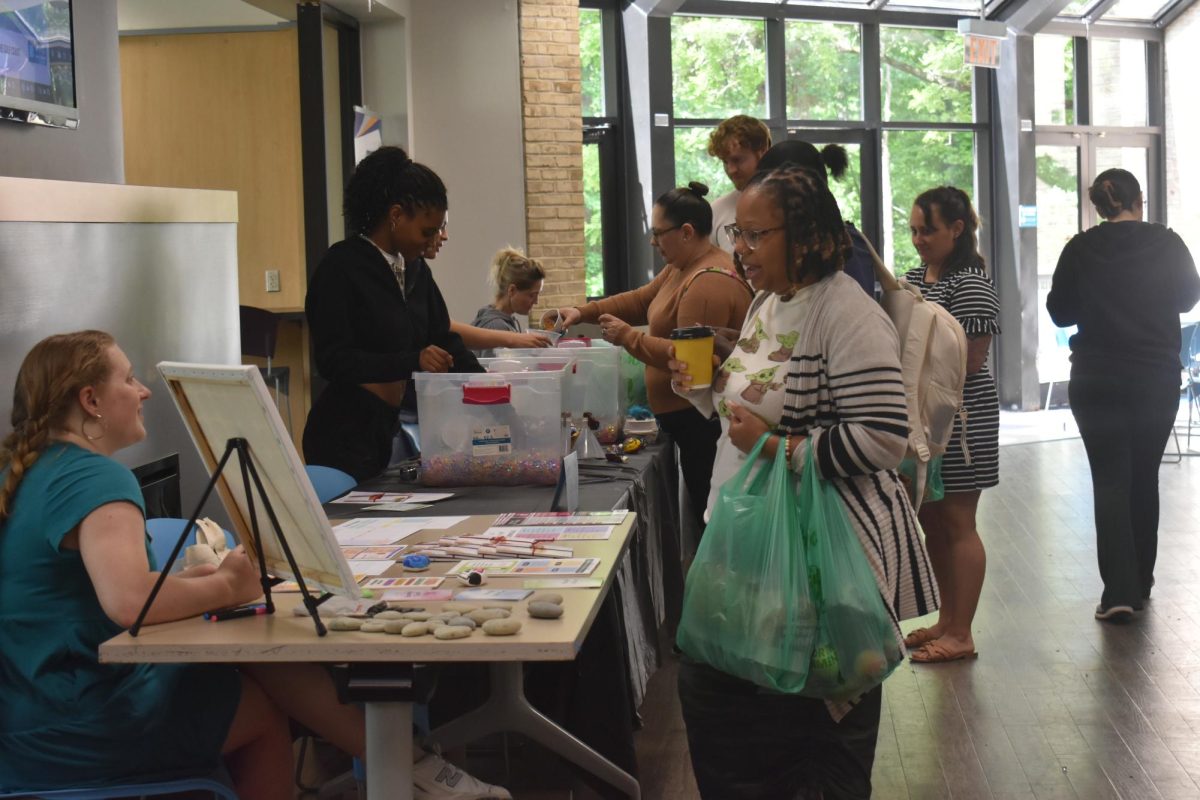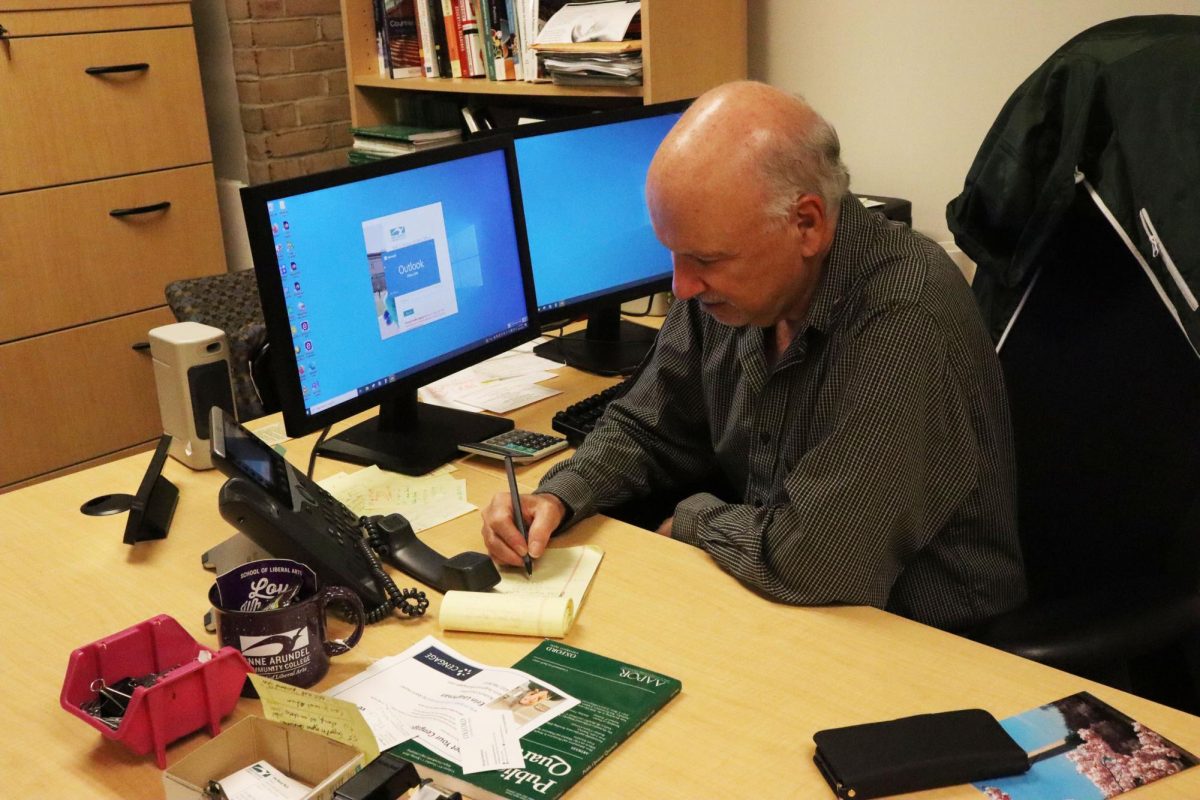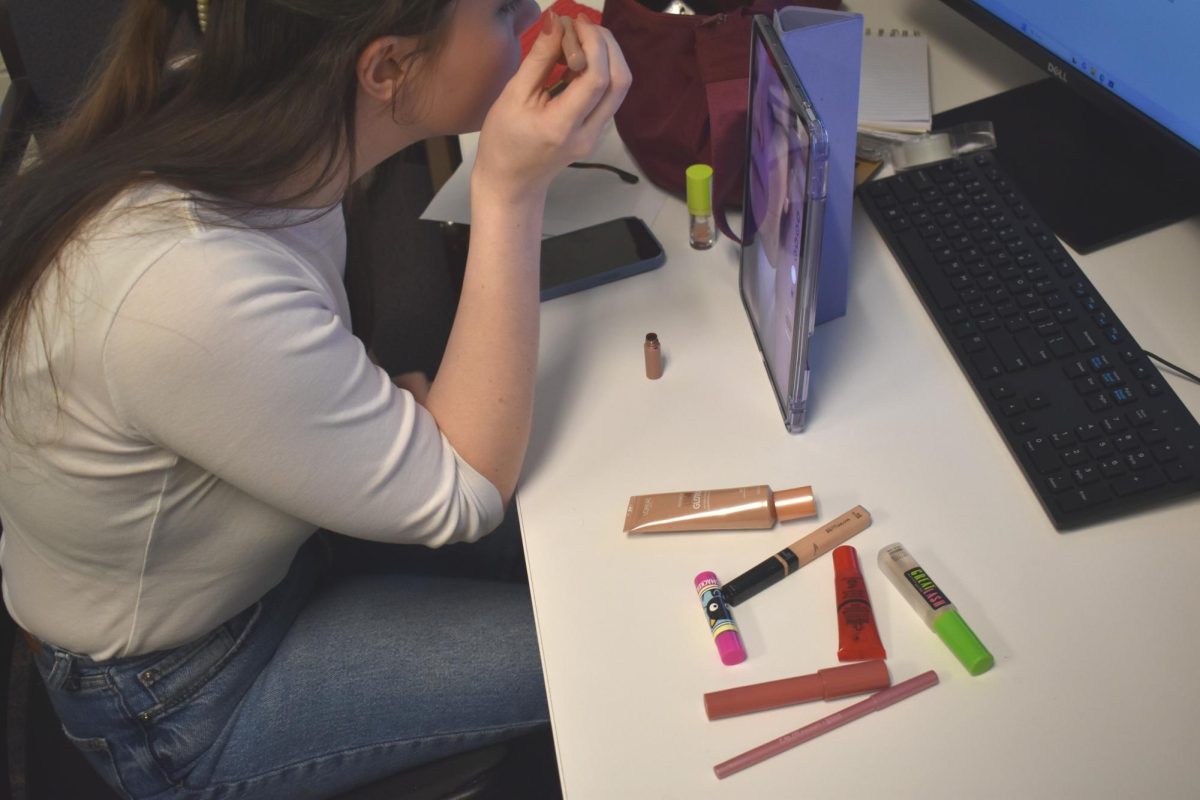If you struggle to stay awake during the day, the cause is pretty clear: You’re not sleeping enough at night.
Ninety percent of Gen Zers say daytime sleepiness affects their everyday lives, according to a survey by the American Academy of Sleep Medicine. Likewise, 87% of Millennials and 68% of Gen Xers say they struggle during the day, the survey revealed.
AACC students told Campus Current they can relate.
“[Being tired] does make it sometimes really hard for me to focus [in class] or sometimes I’ll honestly just skip a class because I don’t want to come in the morning because I’m so tired, so that
does definitely affect it,” second-year transfer studies student Ali Hassan said.
Psychology professor Rachelle Tannenbaum said the recommended amount of sleep for students ages 17 to 19 is eight or nine hours a night, while those older need less—seven or eight hours.
“There’s a lot of individual variation in how much sleep people need,” Tannenbaum said. “So the main thing is, if you’re trying to judge your own sleep, it shouldn’t be just about, ‘When did I get in bed and when did I wake up?’ But, ‘How am I feeling during the day?’ You know, ‘Can I maintain my energy levels without the use of caffeine?’”
But some students said they have to stay up late.
Third-year data science transfer studies student Ev Dahl tends to go to bed “between, like, midnight and two in the morning.”
“I’ve got really bad insomnia, so it just takes me a really long time to fall asleep,” Dahl said. “[Also] sometimes I’m on my phone and a lot of times I finish my homework at, like, midnight, and then it takes me a long time to, like, be less stressed out from, I don’t know, just being alive.”
Some students choose to be night owls.
First-year transfer studies student Alena Engel said she goes to bed at 4 a.m.
“I’m typically either working on homework late, scrolling on my phone, reading or playing video games,” Engel said.
Tannenbaum suggested that students avoid using electronic devices before bed to get better sleep.
She offered some “concrete steps” students can take to reduce late-night scrolling.
First, she said, phones are equipped with wellness settings that a user can program to automatically shut the device down after a certain amount of time. Second, the student can move the phone
out of the bedroom so it’s more difficult to check in the middle of the night.
“That’s just going to interrupt your sleep, right there,” Tannenbaum said.
Some students said they have tried those suggestions without success.
“Everyone always told me if I stopped going on my phone at night, then I wouldn’t stay up late,” Dahl said. “But it turns out that didn’t work very well.”
“I’ll [also] try and put my phone away, or, like, put stuff away for, like, 30 minutes before I go to sleep … because it’s not good for you,” Engel said. “I’d say I do have strategies that I try to do, but they [are not] effective.”
Even overloading on caffeine the day after a poor night’s sleep doesn’t always help, Tannenbaum said.
“It feels like you’re doing just fine,” she said. “You just have your coffee, and life is good, but in the meantime, what it’s doing is diminishing your immune system’s ability to function. So it’s all
fine, right up until the moment it hits you, and now you’re more likely to get sick and it’s going to be worse.”
Dahl agreed.
“I’m always really tired, but I don’t fall asleep in class,” Dahl said. “I just drink a lot of coffee … but even if I slept, like, 20 hours, I’ve got a brain problem where I sleep wrong.”















